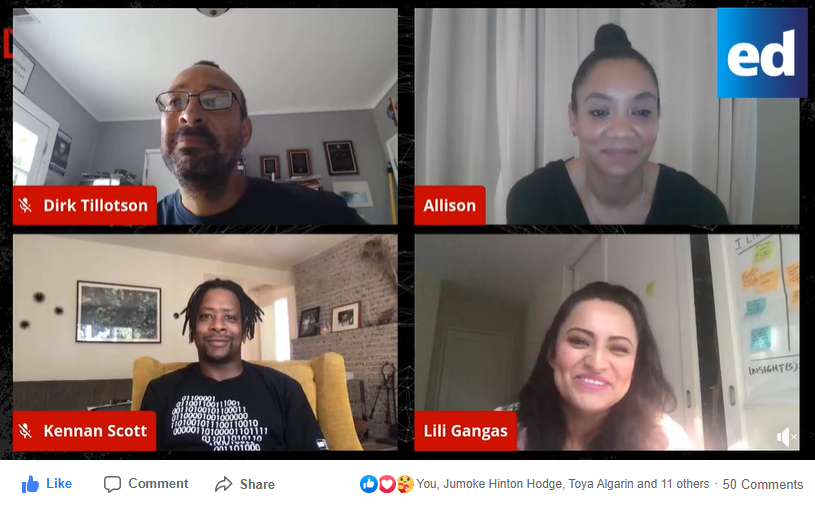Reliable internet access is so ingrained in our modern lives; it can be and should be seen as a public utility, and a right. We use the internet to find jobs, seek information, and now during the COVID-19 pandemic, to see the doctor and go to school. When the internet is necessary for basic health and education, we must stop labeling it as a privilege, and instead provide it as necessity.
This week, we spoke with Dr. Allison Scott, Lili Gangas, and Kennan Scott. Dr. Allison Scott, Chief Executive Officer of the Kapor Center, and Lili Gagas, Chief Technology Community Officer of the Kapor Center, who advocate for a more diverse and inclusive technology ecosystem, particularly for communities that have historically been on the periphery of access to opportunity, participation, and influence in the United States.
Kennan Scott is a former Engineering teacher at West Oakland Middle School in Oakland, California. Beloved by his students, Kennan Scott focuses on nurturing and growing his students, encouraging the development of hidden talents, and pushing his students to be the best they can. He witnessed first hand the power of a teacher who believes in students, and began his own journey into engineering due to the encouragement he received from his high school teacher. They join us today to highlight the inequities of our #digitaldivide, and discuss solutions for our kids that can be implemented today.
Thanks to the Kapor Center, we have access to important data that highlights the impact of our digital divide. Here, we can see the correlation between low incomes and internet performance. Unfortunately, underserved families that don’t have reliable access to the internet receive a ‘double-whammy’ effect: the impacts of poverty alongside being locked out of school, opportunities, health care and more. By actively ignoring and willfully not providing reliable internet access to underserved households, cable internet companies are creating negative feedback loops that ensnare low-income households into poverty traps.
Currently in Oakland, California, the lack of #digitalinclusion is pronounced and seen everywhere, particularly in underserved and low-income households.
And unfortunately, to prepare for the job force of tomorrow, today’s students must have reliable internet and device access so they may learn and train in technology. Thus, reliable internet and device access are barriers of entry to job stability, higher incomes and more.
If you would like to take action, consider joining this National Day of Action on August 26th, 2020. On this day, join a rally, tweet, and post about the need for #internetforall
If you would like to engage in ongoing actions, please reach out to your local elected and congress persons
To find who your Senator and Assembly Members are, click here.
If you would like to add your voice, share and sign this petition: https://www.change.org/InternetForAllKids
Highlights
What do you think? Let us know and share the video with your networks.
#InternetForAll #DigitalInclusion #DigitalDivide #AllStudentsNeedInternet
Don’t miss the next episode of “Access Denied” on our Facebook Live next Friday, August 28th, at 9AM Pacific Time/12 noon Eastern Standard Time.

